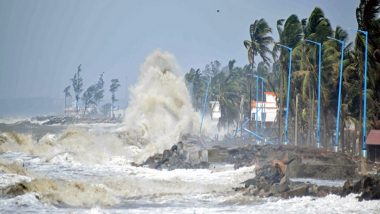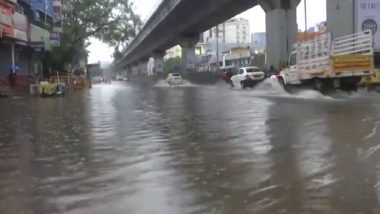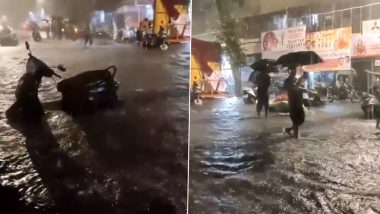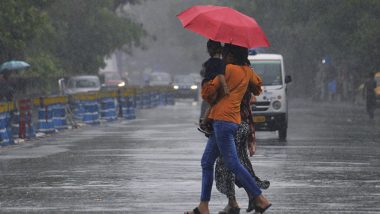When the monsoons hit the country, a whiff of damp earth engulfs our senses; we are often habituated to sipping on a cup of hot tea with a plate of our favourite comfort snacks, listening to 90s retro music and enjoying the sound of raindrops. However, the reality of the seasonal situation is a bit different.
Most common difficulties faced are seasonal illnesses, which are a package monsoon deal. Often caused due to environmental factors, here are the five most common monsoon diseases that you need to look out for. Preparing to tackle them effectively is half the battle won.
Dengue
A disease spread by mosquitoes that typically bite early in the morning or at dawn. It causes persistent headaches, high fever, rashes, and pain in muscles & joints. It can cause complications like abdominal pain, bleeding, and circulatory collapse (shock) called as dengue haemorrhagic fever.
Prevention: Special attention to be given to clothing and repellent patches/ creams to avoid mosquito bites
Treatment: Adequate hydration is of utmost importance in cases of dengue, as it prevents lot of complications. There is no specific treatment for dengue, management depends upon the symptoms.
Malaria
Spread by the female Anopheles Mosquito, this is caused by breeding in water logged areas. Symptoms like fever, body ache, chills, and sweating occur persistently. If untreated, it can lead to complications like jaundice, severe anaemia or even liver and kidney failure.
Prevention: As it is spread by mosquitoes, it is essential to keep mosquitoes from breeding in and around your living space. Additionally, use of mosquito nets and repellents can prevent from acquiring the disease.
Treatment: After confirmation of diagnosis, one must be started on anti-malarial medications as per physician’s instructions. Additional complications would require inpatient management.
Cholera
Is a deadly disease that spreads by contaminated food, water and poor hygienic conditions. It causes severe diarrhoea and vomiting that can lead to severe dehydration and electrolyte imbalance
Prevention: Hand hygiene, proper washing and cooking of food items are essential to prevent this disease. Avoid raw or improperly cooked food items. Drink only safe (boiled or filtered) water
Treatment: Plenty of oral fluids are required to compensate excess fluid loss from the body. In cases of poor oral intake or excessive dehydration, intravenous fluid administration on inpatient basis is required.
Leptospirosis
Is a dangerous disease transmitted by animal urine or water containing animal urine, coming in contact with cracks in the skin, eyes, mouth and nose. Symptoms range from none to mild such as headaches, muscle pains; and fever to severe with bleeding in lungs or meningitis
Prevention: Avoid getting in contact with water contaminated with animal wastes. If you have an occupation like farming or working in sewers, wear adequate protective clothing.
Treatment: Diagnosed cases should be treated with specific antibiotics after consulting a Physician.
Hepatitis
Is a highly contagious Liver infection caused by a virus. It is a waterborne viral infection caused by consuming contaminated water or food with infected stool. It causes Jaundice (yellow eyes and skin, dark urine), stomach pain, loss of appetite, nausea, fever, diarrhoea and fatigue.
Prevention: Consumption of safe water and hygienic food is required. Hand hygiene plays a key role.
Treatment: No specific treatment exists. Management depends upon the symptoms. Early consultation with doctor is important to prevent further complications.
How To Stay Healthy This Monsoons
- Drink clean (filtered or boiled) water
- Cover your mouth and nose with a handkerchief while coughing or sneezing
- Use mosquito repellents and nets while indoor, when outdoor, use repellent creams
- Stay clear of stagnant water
- Keep your garments dry to avoid catching fungal skin infections
- Consume freshly prepared food and avoid eating out
The climatic conditions along with the unsanitary situations prevalent during the rains make monsoons an opportune time for pathogens to spread. If adequate care is not taken, these diseases may have serious consequences. That's why, prevention is better than cure when it comes to monsoons illnesses.
(This article has been contributed by Dr Mohammed Shakeel, HOD -Emergency & Trauma, Fortis Hospital, Kalyan)
(The above story first appeared on LatestLY on Jun 13, 2018 10:03 AM IST. For more news and updates on politics, world, sports, entertainment and lifestyle, log on to our website latestly.com).






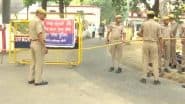






 Quickly
Quickly










